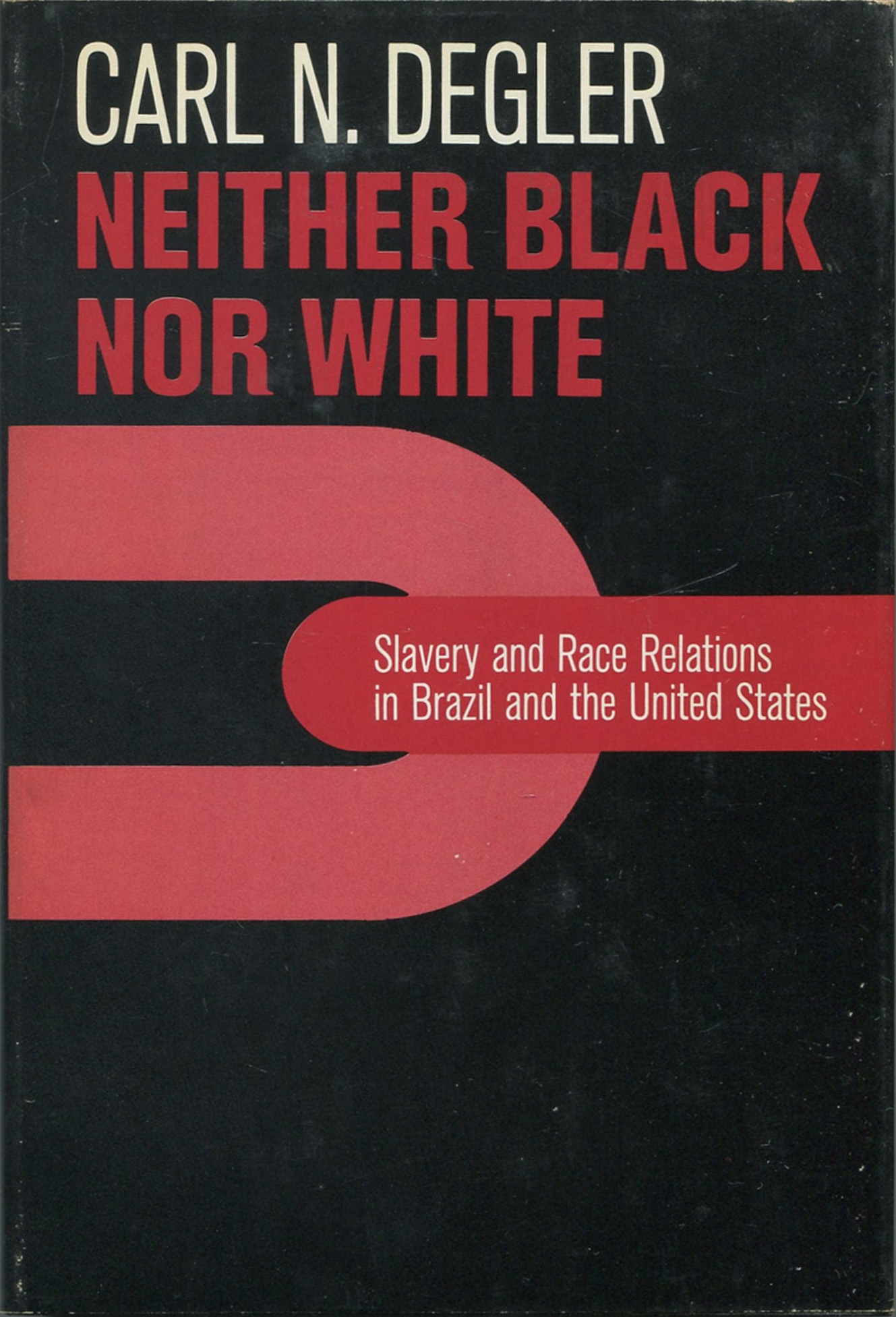Tapa dura, 318 páginas
Idioma English
Publicado el 1971 por Macmillan.
Slavery and Race Relations in Brazil and the United States

Tapa dura, 318 páginas
Idioma English
Publicado el 1971 por Macmillan.
NEITHER BLACK NOR WHITE Is one of the most revealing books on race relations ever published. In it, Carl Degler, the distinguished author and historian, probes the similarities and differences in race relations In Brazil and the United States. The theories and insights that evolve are truly significant.
Brazil was chosen for this comparative study because It is the only New World country that has rivaled the U.S. in the Importance and duration of Its slave system. Some of the differences In racial attitudes In the two countries are Immensely interesting.
The central theme of the book—the point which Professor Degler believes to be the key to explaining the differences In race relations Minthe United States and Brazil—is the existence of a special place for the mulatto (what the author calls the "mulatto escape hatch") in Brazil. As he points out in the Preface: the Brazilian mulatto is not considered …
NEITHER BLACK NOR WHITE Is one of the most revealing books on race relations ever published. In it, Carl Degler, the distinguished author and historian, probes the similarities and differences in race relations In Brazil and the United States. The theories and insights that evolve are truly significant.
Brazil was chosen for this comparative study because It is the only New World country that has rivaled the U.S. in the Importance and duration of Its slave system. Some of the differences In racial attitudes In the two countries are Immensely interesting.
The central theme of the book—the point which Professor Degler believes to be the key to explaining the differences In race relations Minthe United States and Brazil—is the existence of a special place for the mulatto (what the author calls the "mulatto escape hatch") in Brazil. As he points out in the Preface: the Brazilian mulatto is not considered a Negro, while the reverse Is true of his North American counterpart. The author maintains that the differences In race relations In the two societies evolved from this seemingly insignificant variation.
Making full use of the relevant literature In English and Portugese, Professor Degler first calls attention to the obvious differences in race relations in Me two countries. After slavery Is analyzed as the source of these difference, they ere defined at length. In his last chapter the author draws some significant conclusions about the future of race relations in the two societies.
No other comparison of race relations in in two countries approaches the comprehensiveness or the originality of Degler's study. Some of the specific topics covered are the Influence of slave revolts, the role of the church, the patterns of settlement, the cultural forms inherited from the Old World, and the role of ideology.
The simultaneous examination of two countries gives rise to a greater depth of understanding of each. As Degler states in his Preface: "When we learn, for example, that Brazil did not develop a full-blown racial defence of slavery such as was elaborated In the ante-bellum South, we must acknowledge that we can no longer assume that such a defence was a 'natural' consequence of a slave society. From then on we must seek out an explanation Instead of simply assuming one."
The wealth of documented literature included In the book enables the reader to further explore the comparative history of race relations In the two countries. Degler's original scope, presentation, approach, and viewpoint make this a singularly Important new book which will certainly Inspire a great deal of comment.